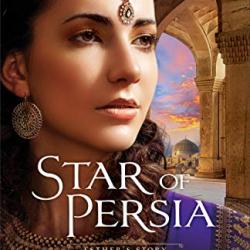 For all their piety, the Bible epics of the past are best remembered for their violent set-pieces. God smote evildoers with earthquakes and lightning, armies clashed on land and at sea, and villainous charioteers were trampled to death by their opponents’ horses. Death and destruction were what kept the crowds coming; but audiences wanted more than blood and guts, so most films offset the violence somewhat by touching on nobler themes, perhaps even by paying some attention to the Prince of Peace.
For all their piety, the Bible epics of the past are best remembered for their violent set-pieces. God smote evildoers with earthquakes and lightning, armies clashed on land and at sea, and villainous charioteers were trampled to death by their opponents’ horses. Death and destruction were what kept the crowds coming; but audiences wanted more than blood and guts, so most films offset the violence somewhat by touching on nobler themes, perhaps even by paying some attention to the Prince of Peace.
Today’s films are another matter. Take Gladiator, the year’s first real blockbuster, which has some things in common with, say, Ben-Hur. Set in the second century, it stars Russell Crowe as Maximus, a wealthy Roman general who, thanks to the jealous new emperor Commodus (Joaquin Phoenix), loses his family and his freedom. With nothing to live for but revenge, Maximus distinguishes himself in the arena and ultimately works his way to the big leagues in Rome, where he itches for a chance to stand before Commodus again and plunge something sharp into the emperor’s belly.
The exalted, brought low, long for their day in the arena. Beyond that, the two films are very different. Ben-Hur was, in the end, a pacifist story, in which the title character, following the example of Jesus, eschews violence and puts down his sword. But in Gladiator, Maximus simply wants revenge. And, in the end, he gets it. But first, he has to kill dozens of people for our viewing pleasure. Beyond satiating the audience’s thirst for blood, the film has no deeper theme to express, apart from Maximus’s oft-stated hope that he will see his loved ones again in the afterlife.
It’s a shame, really, since the film has such a great pool of talent at its disposal. Crowe magnificently conveys the weight of tragic loss that is borne by his character, yet he is capable of surprising moments of good humour, too. Phoenix, especially in his early scenes, brings a compelling humanity to an otherwise uninteresting villain. The late Oliver Reed is testy as ever as Maximus’s slave-owning master, and Richard Harris is effective in a small role as the emperor Marcus Aurelius.
One of Gladiator’s more preposterous ideas is that Aurelius, who ruled more than two centuries after Rome became an empire, was prepared to do away with the imperial system and return control of the government to ‘the people.’ How he would do this, exactly, remains unclear; he complains that the government he knows is too corrupt, but are the people any better? It is they, after all, who sit in the stands and encourage the carnage in the Colosseum. Director Ridley Scott, for his part, never encourages us to question the crowd’s complicity in all this bloodshed; he is too busy staging fight scenes, and we are too busy soaking them in. (18A)
— A version of this review was first published in BC Christian News.












